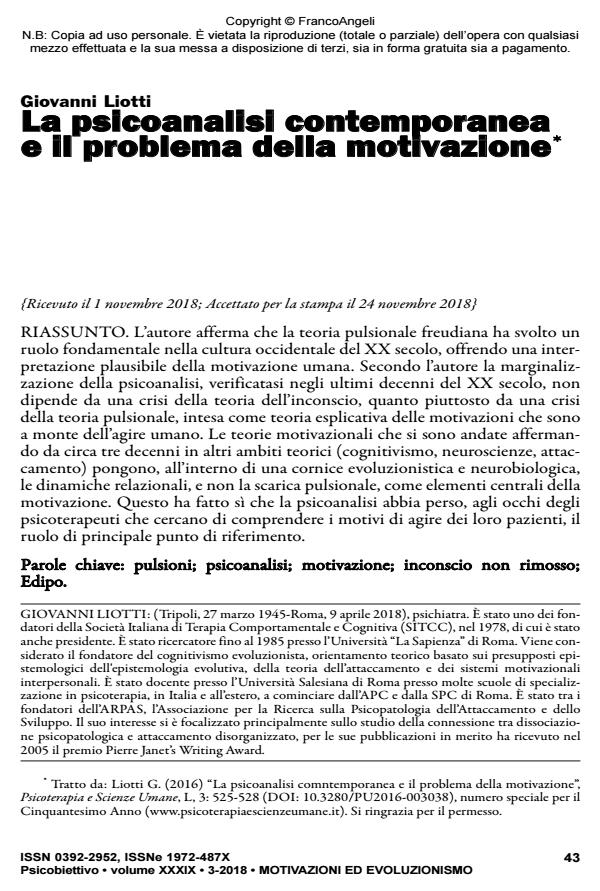Contemporary psychoanalysis and the issue of motivation
Journal title PSICOBIETTIVO
Author/s Giovanni Liotti
Publishing Year 2018 Issue 2018/3
Language Italian Pages 5 P. 43-47 File size 88 KB
DOI 10.3280/PSOB2018-003004
DOI is like a bar code for intellectual property: to have more infomation
click here
Below, you can see the article first page
If you want to buy this article in PDF format, you can do it, following the instructions to buy download credits

FrancoAngeli is member of Publishers International Linking Association, Inc (PILA), a not-for-profit association which run the CrossRef service enabling links to and from online scholarly content.
The author suggests that Freudian drive theory played a key role during the twentieth-century in Western culture by offering a plausible interpretation of human motivation. According to the author, the marginalization of psycho- analysis, which occurred in the last decades of the twentieth century, does not depend on a crisis of the unconscious theory, but rather on a crisis of the drive theory, under- stood as a theory that explains the motivations that are behind human behavior. The motivational theories that have been affirmed for almost three decades in other theoretical fields (cognitivism, neuroscience, attachment), place within an evolutionary and neurobiological framework, the relational dynamics as central elements of motivation and not the impulse discharge. As a consequence, psychoanalysis has lost, in the eyes of psychotherapists who try to understand the reasons for their patients’ actions, the main role as point of reference.
Keywords: Pulsions; Psychoanalysis; Motivation; Unconscious not removed; Oedipus.
Giovanni Liotti, La psicoanalisi contemporanea e il problema della motivazione in "PSICOBIETTIVO" 3/2018, pp 43-47, DOI: 10.3280/PSOB2018-003004